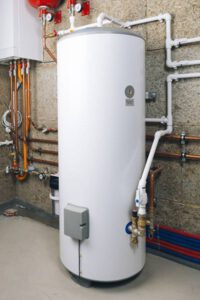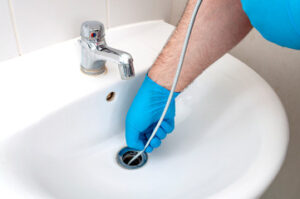A plumbing company plays a vital role in maintaining the functionality and comfort of residential and commercial properties. Plumbing services are essential for the proper installation, maintenance, and repair of water supply and drainage systems.

A well-functioning plumbing system ensures that clean water flows into a property while wastewater is safely removed, protecting the health and safety of the occupants. Contact Ranger Plumbing Company for professional help.
Plumbing companies provide a wide range of services, from fixing leaky faucets and unclogging drains to installing complex piping systems and addressing major plumbing emergencies. Their expertise and specialized knowledge help prevent costly water damage, reduce utility expenses, and ensure that a property’s plumbing infrastructure operates efficiently.
One of the primary responsibilities of a plumbing company is the installation of new plumbing systems. Whether it is a new construction project or a major renovation, plumbing companies are responsible for designing and installing water supply lines, drainage pipes, fixtures, and appliances. Proper installation is critical to ensuring that the system functions efficiently and meets local building codes and regulations. Plumbers must carefully plan the layout of the system, taking into account factors such as water pressure, pipe size, and the placement of fixtures. They also install water heaters, filtration systems, and other appliances that rely on a reliable water supply. A well-designed and professionally installed plumbing system reduces the risk of leaks, blockages, and other issues that could disrupt daily life or cause property damage.
Maintenance is another key service provided by plumbing companies. Regular maintenance helps prevent small problems from escalating into major issues, saving property owners time and money. Maintenance services may include inspecting pipes for signs of corrosion or leaks, cleaning out drains and sewer lines, checking water pressure, and testing the functionality of appliances and fixtures. Routine maintenance ensures that the plumbing system operates at peak efficiency and helps identify potential issues before they become costly repairs. For example, early detection of a small leak can prevent water damage, mold growth, and structural problems. Plumbing companies often offer maintenance contracts that provide property owners with peace of mind, knowing that their plumbing system is being regularly inspected and serviced by professionals.
Repair services are also a core function of a plumbing company. Plumbing problems can arise at any time, and when they do, prompt and effective repairs are essential to minimize damage and restore functionality. Common repair issues include leaky faucets, burst pipes, clogged drains, malfunctioning water heaters, and running toilets. Plumbers use specialized tools and techniques to diagnose and fix these issues quickly and efficiently. In some cases, repairs may require replacing damaged pipes or fixtures, while in others, adjustments to water pressure or valve settings may resolve the problem. Emergency repair services are particularly important, as plumbing issues such as burst pipes or sewer backups can cause significant damage if not addressed immediately. A reliable plumbing company is available to respond to emergencies, ensuring that problems are resolved before they lead to further damage or disruption.
Plumbing companies also specialize in detecting and repairing hidden leaks. Leaks that occur behind walls, under floors, or underground can go unnoticed for a long time, causing extensive water damage and increasing water bills. Advanced leak detection methods, such as thermal imaging and acoustic sensors, allow plumbers to identify the source of a leak without causing unnecessary damage to the property. Once the leak is located, plumbers can repair or replace the affected pipes and restore the integrity of the system. Addressing hidden leaks promptly helps prevent mold growth, structural damage, and other costly issues.
Water quality is another important aspect of plumbing services. Plumbing companies can install and maintain water filtration and purification systems to ensure that the water supply is clean and safe for consumption. Poor water quality can result from contaminants such as rust, sediment, chlorine, and harmful bacteria. A professional plumber can assess the quality of the water supply and recommend the appropriate filtration or treatment system to address specific issues. Installing water softeners, reverse osmosis systems, and UV purifiers improves the taste, odor, and safety of the water, enhancing the overall comfort and health of the occupants.
Drain cleaning is a common service provided by plumbing companies. Over time, debris such as grease, hair, soap scum, and food particles can accumulate in drains and cause blockages. Slow-draining sinks, gurgling toilets, and foul odors are signs of clogged drains that require professional attention. Plumbers use high-pressure water jets, drain snakes, and other tools to clear out blockages and restore proper drainage. Regular drain cleaning helps prevent backups and reduces the risk of damage to pipes and fixtures. In cases where tree roots have invaded underground sewer lines, plumbers may need to use specialized equipment to remove the roots and repair any damaged pipes.
Sewer line repair and replacement are more complex services that plumbing companies handle. Sewer line issues can cause unpleasant odors, slow drainage, and even sewage backups. Tree roots, ground shifting, and pipe corrosion are common causes of sewer line problems. Plumbing companies use methods such as video inspection to diagnose sewer line issues accurately and determine the best course of action. In some cases, trenchless repair methods, such as pipe relining or bursting, can be used to fix damaged sewer lines without extensive digging. These modern techniques minimize disruption to the property and reduce repair costs.
Installation and repair of plumbing fixtures and appliances are also important services provided by plumbing companies. Sinks, toilets, showers, bathtubs, and dishwashers rely on proper plumbing connections to function correctly. Improper installation or wear and tear can lead to leaks, low water pressure, and other performance issues. Professional plumbers have the expertise to install and repair fixtures correctly, ensuring that they operate efficiently and meet the property owner’s needs. Upgrading to water-efficient fixtures can also help reduce water consumption and lower utility bills.
Water heater installation and repair are key services that plumbing companies offer. A reliable hot water supply is essential for daily activities such as bathing, cooking, and cleaning. Over time, sediment buildup, corrosion, and faulty components can reduce the efficiency and performance of a water heater. Plumbers can flush out sediment, replace heating elements, and repair or replace damaged tanks to restore the system’s performance. For property owners looking to improve energy efficiency, plumbers can recommend and install tankless water heaters or hybrid systems that provide hot water on demand while reducing energy consumption.
Plumbing companies also provide gas line installation and repair services. Gas lines are used to supply fuel to stoves, water heaters, fireplaces, and other appliances. Leaking or improperly installed gas lines pose serious safety risks, including fire and carbon monoxide poisoning. Professional plumbers are trained to install and repair gas lines safely, ensuring that they comply with safety standards and local codes. Gas line inspections and pressure tests help identify leaks and ensure that the system is operating safely and efficiently.
Backflow prevention is another important service offered by plumbing companies. Backflow occurs when contaminated water flows back into the clean water supply, posing a serious health risk. Backflow can result from changes in water pressure or malfunctioning valves. Plumbers can install and test backflow prevention devices to protect the property’s water supply from contamination. Regular testing and maintenance of these devices help ensure that they function properly and meet regulatory requirements.
Plumbing companies also offer consultation and planning services for construction and renovation projects. Plumbers work closely with architects, contractors, and property owners to design and implement efficient plumbing systems that meet the needs of the building’s occupants. Proper planning and coordination help avoid costly mistakes and ensure that the plumbing system integrates seamlessly with the overall design of the property. Experienced plumbers provide valuable insights into water conservation, energy efficiency, and modern plumbing technologies, helping property owners make informed decisions about their plumbing infrastructure.
A reliable plumbing company is essential for maintaining the functionality, safety, and comfort of a property. From installation and maintenance to emergency repairs and system upgrades, plumbing companies provide a wide range of services that address the unique needs of residential and commercial properties. Their expertise and specialized equipment enable them to diagnose and resolve plumbing issues efficiently, minimizing disruption and reducing long-term costs. Regular maintenance and professional inspections help prevent problems, improve system efficiency, and ensure that the plumbing infrastructure remains in good condition for years to come.







